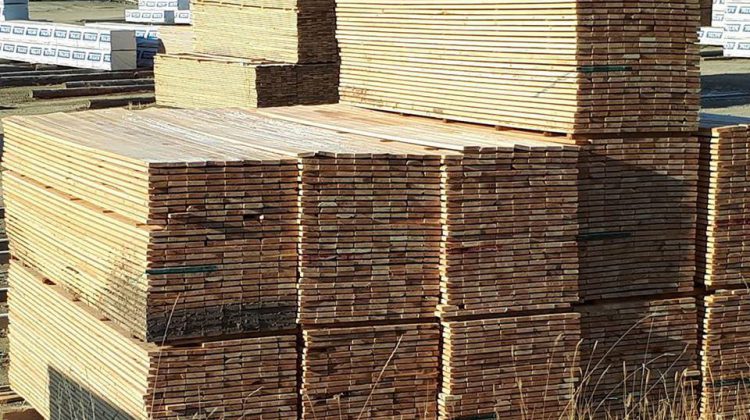The United States Department of Commerce has issued preliminary countervailing and antidumping rates on Canadian softwood lumber.
The reported rate has been set at 18.32%, more than double the current rate of 8.99%. BC Lumber Trade Council President Susan Yurkovich says they find this rate troubling. “It is particularly egregious given lumber prices are at a record high and demand is skyrocketing in the U.S. as families across the country look to repair, remodel, and build new homes,” Yurkovich says, “As U.S. producers remain unable to meet domestic demand, the ongoing actions of the industry, resulting in these unwarranted tariffs, will ultimately further hurt American consumers by adding to their costs.”
Yurkovich explains what these rates are:
“These are duties that are paid by Canadian lumber producers, for shipping in shipping softwood to the US. In a time when demand is very high and we’ve had massive supply chain disruptions and we’ve seen record high lumber prices, this will add another 18.32 percent onto those prices that U.S. consumers are paying for their lumber that comes from Canada. We produce it, and we pay a duty on it, those money deposits which currently until those litigations are resolved are held. Right now, Canada has over 5 billion dollars on deposit because we’ve been paying these duties since 2017, and now it looks like the duty rate will go up from 9 percent to about 18 percent so that means on every shipment of lumber Canadian companies have to pay a 20% duty.”
Yurkovich says these rates are not just harmful to the American consumer, but also to Canadian lumber producers.
“The dispute around softwood lumber has been going on between Canada and the U.S. for decades what needs to happen is this issue needs to get resolved. We need to get the US industry to accept the fact that the Canadian industry is not subsidized which was the allegation that they’ve been levelling for years, and we fight this in the courts and we win but in the meantime, we pay these very significant duties and those duties are held on deposit for Canadian companies, that’s money not being spent on equipment, it’s not being spent employing people in this side of the border.”
Yurkovich says these rates are just preliminary rates, and the finalized rates are expected to come in November this year.
Something going on in the Cariboo you think people should know about?
Send us a news tip by emailing [email protected].








